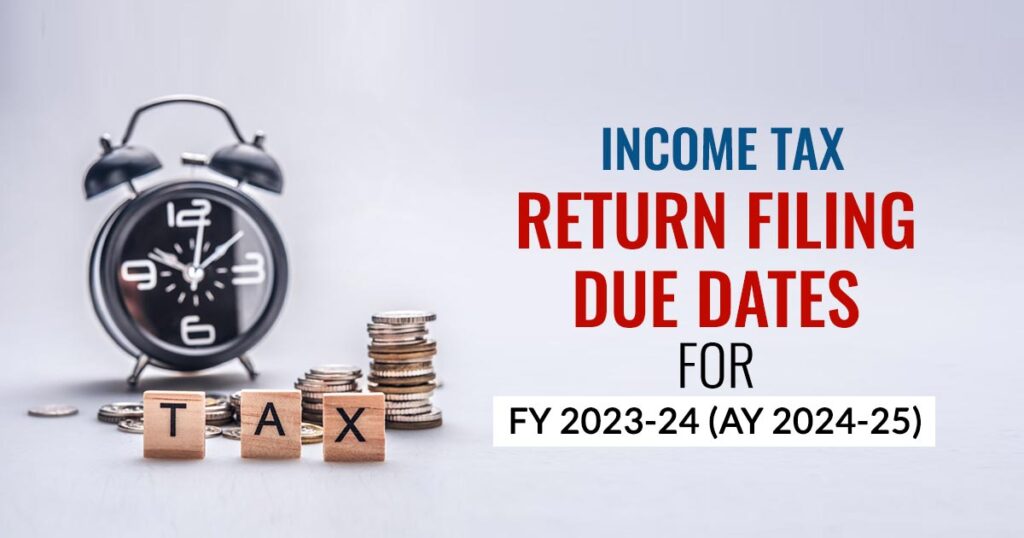Everything You Need to Know About the Income Tax Return Last Date

Filing income tax returns is a crucial responsibility for every taxpayer. It’s not just about fulfilling a legal obligation but also about ensuring financial compliance and transparency. Missing the income tax return (ITR) deadline can lead to penalties and unnecessary hassles. Therefore, staying informed about the last date for filing your income tax return is essential. Here’s everything you need to know about the income tax return last date, along with some tips to make the process smoother.
Importance of Filing Income Tax Returns on Time

Filing your income tax return on time has several benefits:
- Avoiding Penalties: Missing the ITR deadline can result in late filing fees and penalties. As per the current tax laws, a delay can attract a penalty of up to ₹10,000, depending on how late you file.
- Claiming Refunds: If you are eligible for a tax refund, filing on time ensures you get your money back sooner.
- Loan and Visa Applications: Timely filed ITRs are often required for processing loans and visa applications. They serve as proof of income and financial stability.
- Carry Forward Losses: If you have incurred losses in a financial year, timely filing allows you to carry forward those losses to future years, which can be set off against future profits.
Last Date for Filing Income Tax Return
The last date for filing income tax returns varies based on the category of taxpayers. Typically, for individual taxpayers and Hindu Undivided Families (HUFs) who do not require an audit, the deadline is July 31st of the assessment year. For businesses and entities requiring audit, the deadline is usually September 30th.
However, these dates can be extended by the Income Tax Department due to various reasons such as changes in tax laws, system upgrades, or extraordinary circumstances like the COVID-19 pandemic. Therefore, it is always advisable to stay updated with the latest announcements from the Income Tax Department.
Steps to File Your Income Tax Return
Filing your ITR can seem daunting, but with the right approach, it can be a straightforward process. Here are the steps to file your income tax return:
- Gather Required Documents: Collect all necessary documents such as Form 16, Form 26AS, bank statements, interest certificates, and details of other income and investments.
- Choose the Correct ITR Form: The type of ITR form you need to file depends on your income sources. For example, ITR-1 is for salaried individuals, while ITR-4 is for those with presumptive income from business or profession.
- Log in to the Income Tax Portal: Visit the official Income Tax Department e-filing portal (https://www.incometax.gov.in) and log in using your credentials.
- Fill in the Details: Enter your income details, claim deductions, and verify the tax paid.
- Validate Your Return: Use the validation option to check for any errors or discrepancies.
- Submit and Verify: Once validated, submit your ITR and verify it using options like Aadhaar OTP, EVC through bank account, or sending a physical ITR-V to the CPC, Bengaluru.
Tips to Avoid Last-Minute Rush
- Start Early: Begin gathering documents and information well before the deadline.
- Double-Check Details: Ensure all the details are correctly entered to avoid rejection or penalties.
- Seek Professional Help: If your finances are complex, consider hiring a tax consultant or CA to assist you.
- Stay Updated: Regularly check for any announcements regarding deadline extensions or changes in tax laws.
Conclusion
Filing your income tax return on time is not just about avoiding penalties but also about staying financially disciplined and compliant. With the right preparation and awareness, the process can be hassle-free. Remember to mark the ITR filing deadline on your calendar, start early, and ensure you have all the required documents. Stay informed about any changes or extensions to the last date to file your ITR to avoid any last-minute rush or issues.



